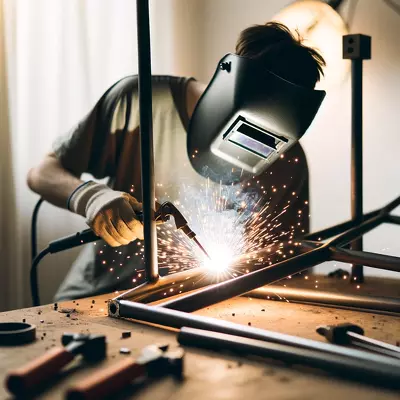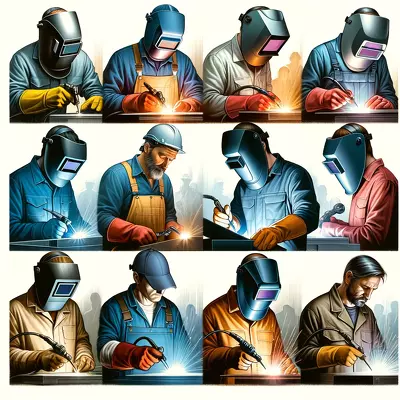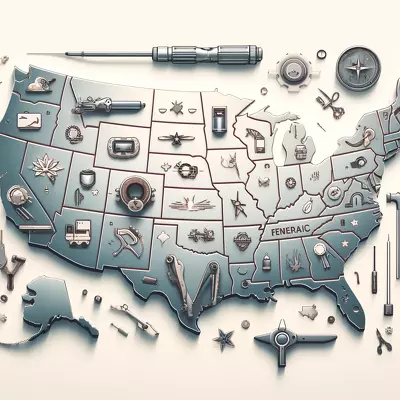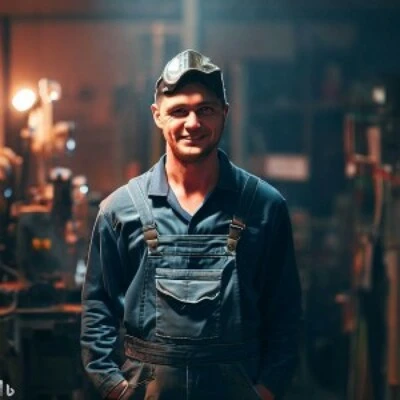Different Types of Welding Jobs and Salary: A Comprehensive Overview for Aspiring Welders

Welding stands as a critical process in the construction and manufacturing industries, offering a wide array of career paths for skilled professionals. From underwater welding to aerospace applications, the field encompasses various specialties, each with its unique demands and rewards. Salaries vary significantly, reflecting factors such as experience, location, and the complexity of the work. This article explores the diverse landscape of welding careers, shedding light on the potential earnings and opportunities available in this dynamic field.
I. Introduction
The welding profession serves as the backbone of industrial development, enabling the construction of everything from high-rise buildings to sophisticated machinery. This article delves into the various welding careers, highlighting the indispensable role of welding across numerous sectors, the diverse types of welding jobs available, the potential earnings associated with these roles, and the factors that influence these earnings. Furthermore, it outlines the necessary steps for those aspiring to enter this field, emphasizing the importance of education, certification, and ongoing skill development.
II. Overview of Welding Careers
A. Importance of Welding in Various Industries
Welding is crucial across a broad spectrum of industries, including construction, automotive, aerospace, and manufacturing. This process not only ensures the integrity and safety of structures and products but also drives innovation by allowing the development of new materials and construction methods.
B. Key Skills and Qualifications for Welders
Successful welders possess a mix of technical skills, physical stamina, attention to detail, and the ability to work in challenging environments. Formal training and certifications, such as those offered by the American Welding Society (AWS), are often required to demonstrate a welder’s proficiency in various techniques and standards.
III. Different Types of Welding Jobs
A. Commercial Welding
- Construction Welding involves creating the skeletal frames of buildings and bridges, requiring precision and the ability to work at heights.
- Manufacturing Welding focuses on assembling machinery and equipment, demanding proficiency in multiple welding techniques to ensure product durability and safety.
B. Specialty Welding
- Underwater Welding combines diving skills with welding expertise, catering to the repair and construction of underwater structures.
- Aerospace Welding requires working with high-strength, lightweight materials to meet the exacting standards of the aviation and space industries.
- Automotive Welding involves the fabrication and repair of automotive parts, requiring skills in both traditional and advanced welding techniques.
C. Advanced Welding Technologies
- Robotic Welding highlights the integration of automation in welding, necessitating skills in programming and operating welding robots.
- Laser Welding represents a cutting-edge method used for its precision and efficiency in applications requiring delicate welding.
IV. Salary Expectations for Welding Jobs
A. Entry-level Welding Positions
May start with salaries as low as $30,000 annually, depending on the complexity of the job and the welder’s qualifications.
B. Mid-Level Welding Positions
With several years of experience, you can expect to earn between $40,000 and $60,000 annually.
C. Senior-level welding Positions
Including those with specialized skills or supervisory roles, can command salaries upwards of $70,000 or more.
V. Factors Influencing Welding Salaries
- Experience and Expertise play significant roles in determining a welder’s salary, with specialized skills commanding higher pay.
- Geographic Location affects salaries, with welders in urban or industrially dense areas typically earning more due to higher demand and cost of living.
- Industry Demand dictates salary ranges, with industries requiring high precision and expertise, such as aerospace and underwater welding, offering higher wages.
VI. Preparing for a Career in Welding
- Education and Certification through accredited institutions provide foundational knowledge and demonstrate a welder’s skill level to potential employers.
- Gaining Practical Experience via apprenticeships or entry-level positions is crucial for skill development and career advancement.
- Continuing Education and Specialization through workshops and advanced certifications can open doors to higher-paying specialized welding positions.
VII. FAQs
Q: What is the highest-paying welding job?
A: Underwater welders and aerospace welders often receive the highest salaries due to the specialized skills and risks involved.
Q: How long does it take to become a certified welder?
A: The time varies, but typically, it takes between 6 months to 2 years of training and experience to obtain basic welding certifications.
Q: Do welders need to be certified in every state?
A: While not always required, certifications can significantly improve job prospects and are highly recommended.
Q: Can welders work internationally?
A: Yes, welders with high-demand skills and certifications can find opportunities worldwide, especially in industries like oil and gas or construction.
Q: Is welding a dangerous job?
A: It can be due to the risk of burns, electric shock, and exposure to gases, but safety training and proper equipment significantly reduce these risks.
Q: What is the future outlook for welding careers?
A: The demand for skilled welders is expected to remain strong, especially in sectors like renewable energy, infrastructure, and advanced manufacturing.
Q: How can welders advance in their careers?
A: Through gaining experience, pursuing advanced certifications, and specializing in high-demand welding techniques.
VIII. Conclusion
A. Future Outlook for Welding Careers
The welding industry is poised for growth, driven by the ongoing need for infrastructure development, manufacturing innovation, and the advent of new welding technologies. Welders who continuously update their skills and knowledge can expect robust career opportunities.
B. The Importance of Continuous Learning and Adaptation
In the ever-evolving field of welding, adaptability and a commitment to learning are key. Professionals who embrace new technologies and refine their expertise can thrive in this competitive landscape.
IX. Suggested Readings
Before embarking on a welding career or seeking to advance within the field, enriching one’s knowledge through literature can be incredibly beneficial. The following titles provide a mix of foundational knowledge, advanced techniques, and insights into the future of welding.
- “Welding: Principles and Applications” by Larry Jeffus: This comprehensive guide covers the latest technology, processes, and practices in welding, offering a solid foundation for beginners and experienced welders alike.
- “Modern Welding Technology” by Howard B. Cary: A detailed exploration of welding technology that delves into both traditional and cutting-edge welding methods, suitable for students and professionals looking to expand their technical knowledge.
- “The Welder’s Handbook: A Complete Guide to MIG, TIG, Arc & Oxyacetylene Welding” by Richard Finch: A practical manual for anyone interested in mastering welding techniques, from hobbyists to professionals.
- “Underwater Welding” by D.J. Keats: A fascinating look into the challenging world of underwater welding, offering insights into the techniques, equipment, and safety measures essential for success in this niche field.
- “Robotic Welding, Intelligence and Automation” edited by Tzyh-Jong Tarn: An insightful collection on the advancements in robotic welding, discussing automation, intelligent systems, and future trends in welding technology.
These resources serve as invaluable tools for those aiming to forge a successful career in welding, offering guidance on techniques, safety practices, and insights into the sector’s future. As the industry continues to evolve, staying informed through such literature will be crucial for aspiring and seasoned welders alike to navigate the changes and seize new opportunities.






